Browse in the Library:
| Artist or Composer / Score name | Cover | List of Contents |
|---|---|---|
| Alan Silvestri Contact Main Thitle Piano Solo |
 |
|
| Alan Silvestri The Avengers |
 |
Alan Silvestri The Avengers |
| Alan Walker – Faded |
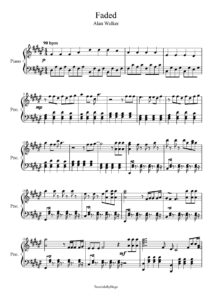 |
|
| Alan-Menken – Enchanted (Disney) |
 |
Enchanted Piano Vocal Guitar |
| Alanis Morisette – Hand In My Pocket | ||
| Alanis Morisette – Hands Clean | ||
| Alanis Morisette – Ironic | ||
| Alanis Morisette – Thank You | ||
| Alanis Morisette – That I Would Be Good | ||
| Alanis Morisette – Uninvited | ||
| Alanis Morisette – You Oughta Know | ||
| Alanis Morrissete You Oughta Know Sheet Music |
 |
|
| Alban Berg – Schliesse Mir Die Augen Beide (Musescore File).mscz | ||
| Alban Berg – Schliesse mir die Augen beide (Piano and voice Noten) |
 |
|
| Albeniz Isaac – Tango In D – Para Piano | Albeniz, Isaac – Tango In D – Para Piano | |
| Albeniz For Acoustic Guitar with Audio MP3 by Laurindo Almeida |
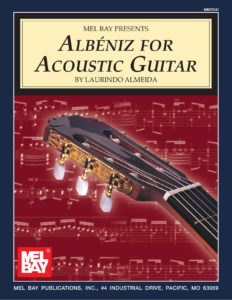 |
Albeniz for acoustic guitar with audio MP3 |
| Albeniz Suite Española V (Musescore File).mscz | ||
| Albéniz, Isaac – Capricho Catalán (Op. 165 no. 5) (Guitarra – Guitar) |
 |
|
| Albéniz, Isaac – Capricho Catalán (Op. 165 no. 5) (Piano) |
 |
|
| Albert Ammons 5 Boogie Woogie Piano Solos Sheet Music |
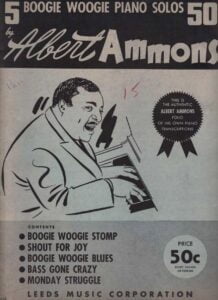 |
Albert Ammons 5 Boogie Woogie Piano Solos Sheet Music |
| Albert Ammons – Boogie Woogie Stomp |
 |
|
| Albert Ammons – Monday Struggle | Albert Ammons – Monday Struggle | |
| Albert Ammons – Shout For Joy | Albert Ammons – Shout For Joy | |
| Albert Ammons – Swanee River Boogie Woogie |
 |
|
| Albert Harris Sonatina Guitar Solo |
 |
|
| Albert Harris Variations And Fugue On A Theme Of Haendel (Guitar) |
 |
|
| Albert King The Very Best Of Albert King (Guitar TABs) |
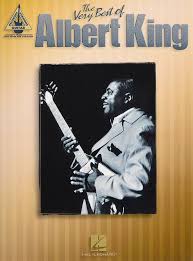 |
Albert King The Very Best Of Albert King |
| Albert Lee – The Best Of Albert Lee Guitar Tabs |
 |
Albert Lee – The Best Of Albert Lee Guitar Tabs |
| Albinoni – Adagio (Piano Solo Version) |
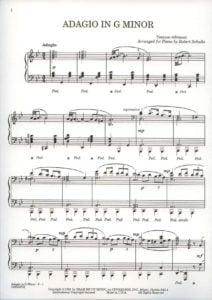 |
|
| ALBINONI-Adagio |
 |
|
| Album of Russian piano music | Russian music 1 | Russian music 2 |
| Album Of Scandinavian Piano Music By Louis Oesterle Vol. 1 (25 Pieces) 1902 |
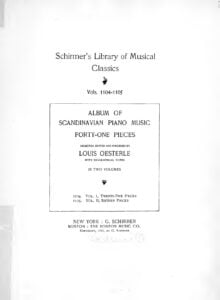 |
Album Of Scandinavian Piano Music By Louis Oesterle Vol. 1 (25 Pieces) 1902 |
| Alegre Magín – Americana (Guitarra) Habanera (Musescore File).mscz | ||
| Alegria Cirque Du Soleil Piano Vocal Guitar Chords Sheet Music |
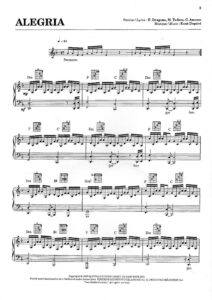 |
|
| Alejandro Sanz – Amiga Mia | ||
| Alejandro Sanz – La Margarita Dijo No | ||
| Alejandro Sanz – Y Si Fuera Ella | ||
| Aleksander Vertinskiy songbook |
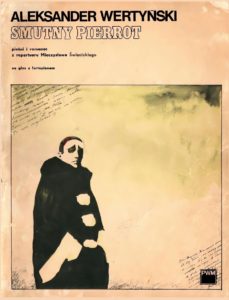 |
Aleksander Vertinskiy songbook |
| Alex North – Spartacus Love Theme (piano sheet music) |
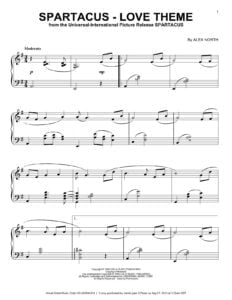 |
Alex North Spartacus Love Theme |
| Alex North Spartacus Love Theme (Lead sheet) | Alex Norrth SpArtacus | |
| Alexander Scriabin 24 Preludes Op. 11 1 To 12 Musescore File.mscz | ||
| Alexandra Streliski Burnout Fugue |
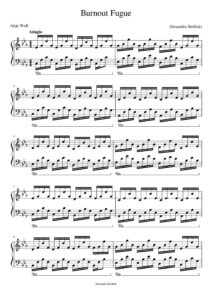 |
|
| Alexandra Streliski Le Noveau Dèpart |
 |
|
| Alexandra Streliski Par La Fenêtre De Théo |
 |
|
| Alexandra Streliski Plus Tôt |
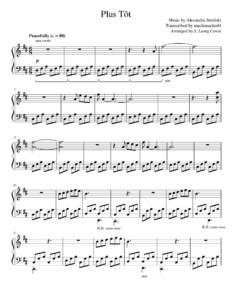 |
|
| Alexandra Strevisky Pianoscope |
 |
Alexandra Strevisky Pianoscope |
| Alexandre Desplat Elisas Theme Piano from The shape of water |
 |
|
| Alexandre Desplat The Shape Of Water Main Theme |
 |
|
| Alexandre Desplat – Lust Caution |
 |
Alexandre Desplat – Lust Caution |
| Alexandre Desplat – The Imitation Game |
 |
|
| Alexandre Desplat – The Meadow New Moon Piano solo Sheet Music |
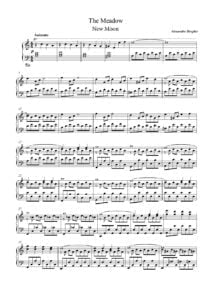 |
|
| Alexandre Desplat Almost A Kiss (From The Film New Moon) |
 |
|
| Alexandre Desplat and Lang Lang Kitty,s Theme from The Painted Veil | Alexandre Desplat and Lang Lang Kitty,s Theme from The Painted Veil | |
| Alexandre Desplat Brunos Theme From Suite Fran?aise |
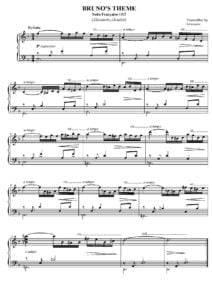 |
|
| Alexandre Desplat Full Moon (From The Film New Moon) |
 |
|
| Alexandre Desplat My Week With Marilyn – Marilyn’s Theme |
 |
|
| Alexandre Desplat Ost Godzilla Main Theme |
 |
|
| Alexandre Desplat The Danish Girl Theme Piano Solo |
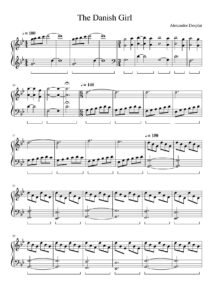 |
|
| Alexandre Desplat The Imitation Game |
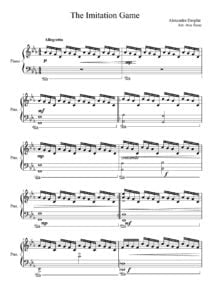 |
|
| Alexandre Desplat The King Speech |
 |
Alexandre Desplat The King Speech |
| Alexandre Desplat The Power Plant from Godzilla |
 |
|
| Alexandre Desplat The Wonder Of Life |
 |
|
| Alexandrov Piano Works Vol I |
 |
|
| Alexandrov Works for Piano Vol II |
 |
|
| Alexandrov Works for Piano Vol III Sonatas |
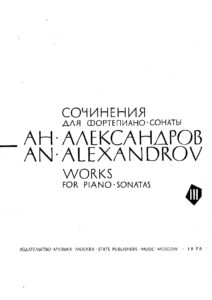 |
|
| Alexandrov, Anatoly 6 Preludes For Piano Op. 1 (1961) |
 |
|
| Alexis Ffrench – Bluebird |
 |
|
| Alfred Basic Adult Christmas Book Level 1 |
 |
|
| Alfred Basic Repertoire Level 4 |
 |
|
| Alfred Brendel A Pianists A-Z A Piano Lovers Reader Book |
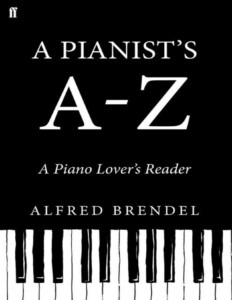 Andrew Hill 21 Piano Compositions Andrew Hill 21 Piano Compositions |
|
| Alfred’s Basic Adult Piano Course Level 1 |
 |
Lessons Alfred’s Basic Adult Piano Course Level 1 |
| Alfred’s Basic Adult Piano Course Level 2 |
 |
Lessons Alfred’s Basic Adult Piano Course Level 2 |
| Alfred’s Basic Adult Piano Course Level 3 |
 |
Lessons Alfred’s Basic Adult Piano Course Level 3 |
| Alfred’s Basic Piano Level 2B |
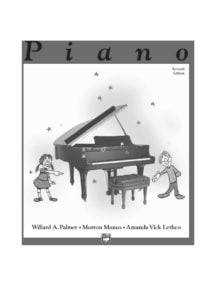 |
|
| Alfred’s Basic Piano Level 4 Jazz Rock Course |
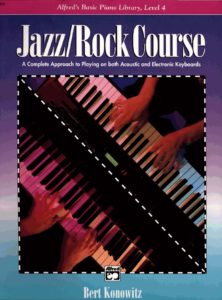 |
|
| Alfred’s Basic Piano Library Essentials Of Jazz Theory Book 2 |
 |
Alfred’s Basic Piano Library Essentials Of Jazz Theory Book 2 |
| Alfred’s Basic Piano Library – Solo Book Complete Levels 2 & 3 for the later beginner |
 |
Alfred’s Basic Piano Library – Solo Book Complete Levels 2 & 3 for the later beginner |
| Alfred’s Basic Piano Library – Top Hits! Solo Book – Level 4 |
 |
|
| Alfred’s Basic Piano Library Essentials Of Jazz Theory Book 1 |
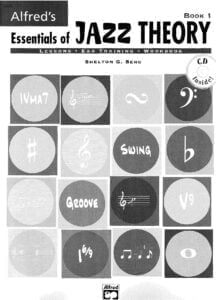 |
Alfred’s Basic Piano Library Essentials Of Jazz Theory Book 1 |
| Alfred’s Basic Piano Library Essentials Of Jazz Theory Book 3 |
 |
Alfred’s Basic Piano Library Essentials Of Jazz Theory Book 3 |
| Alfred’s Basic Piano Library Lesson Book Level 3 |
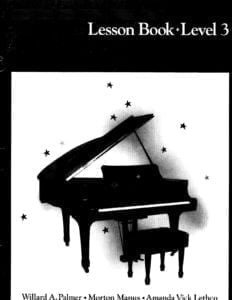 |
|
| Alfred’s Teach Yourself To Play Guitar Everything You Need To Know To Start Playing The Guitar! (with Tablature) |
 |
|
| Alfred’s Essentials Of Music Theory, Complete (Andrew Surmani, Karen Farnum Surmani Etc.) Sheet Music |
 |
|
| Ali and Nino (Dario Marianelli) | ||
| Alice Coltrane Monument Eternal (book) The Music of – by Franya J. Berkman |
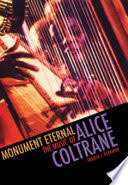 |
|
| Alice In Chains Dirt Full album Guitar TAB with lyrics |
 |
Alice In Chains Dirt Full album Guitar TAB with lyrics |
| Alicia Keys – A Woman’s Worth | Alicia Keys – A Woman’s Worth | |
| Alicia Keys – A Womans Worth | ||
| Alicia Keys – And I | ||
| Alicia Keys – As I Am (Songbook) |
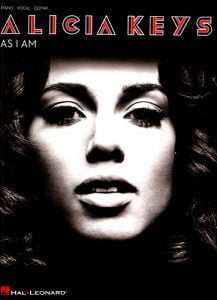 |
ALICIA KEYS SONGBOOK |
| Alicia Keys – Butterflyz | ||
| Alicia Keys – Diary | ||
| Alicia Keys – Fallin | ||
| Alicia Keys – Fallin’ (Sheet Music – Piano) | Alicia Keys – Fallin’ (Sheet Music – Piano) | |
| Alicia Keys – Goodbye | ||
| Alicia Keys – How Come You Dont Call Me | ||
| Alicia Keys – If I Aint Got You |
 |
|
| Alicia Keys – Impossible | ||
| Alicia Keys – Never Felt This Way | ||
| Alicia Keys Diary Song Book |
 |
ALICIA KEYS DIARY SONGBOOK |
| Alicia Keys The Element Of Freedom Songbook |
 |
ALICIA KEYS |
| Alicia Keys Unplugged |
 |
ALICIA KEYS UNPLUGGED |
| Alkan, Charles Valentin Concerto For Solo Piano 1st Movement Opus 39 No. 8 In G Minor (Piano Solo Reduction) |
 |
|
| All 4 One – I Can Love You Like That | ||
| All 4 One – I Swear | ||
| All American Folk Complete Sheet Music Editions Volume One (Creative Concepts Publishing Corp.) |
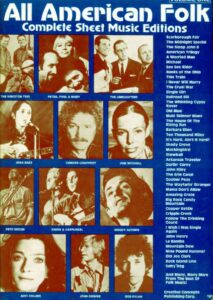 |
All American Folk Complete Sheet Music Editions Volume One (Creative Concepts Publishing Corp.) ( |
| All Blues For Jazz Guitar Comping Styles Chords And Grooves by Jim Ferguson Guitar Tablature |
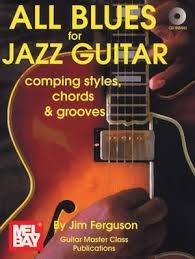 |
All Blues For Jazz Guitar Comping Styles Chords And Grooves by Jim Ferguson Guitar Tablature |
| All Blues Soloing For Jazz Guitar – Jim Gerguson Play Along (Book + audio MP3) with Tablature |
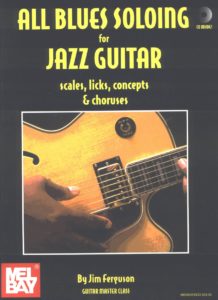 |
All Blues Soloing jazz guitar |
| All By Myself – Celine Dion (Musescore File).mscz | ||
| All I Want For Christmas Is You (Musescore File).mscz | ||
| All Of Me – Jazz Standard Stride Piano arr. Gerald Marks and Seymour Simons | All of me (Gerald Marks and Seymour Simons) Jazz Piano Solo arr. sheet music | |
| All Of Me – Jazz Standard Stride Piano Arr. Gerald Marks And Seymour Simons (Musescore File).mscz | ||
| All Of Me Fingerstyle Guitar TABs By Lucas Brar Jazz Standard (Gerald Marks and Seymour Simons) | All Of Me Fingerstyle Guitar TABs By Lucas Brar Jazz Standard | |
| All Of Me Gerald Marks & Seymour Simons 1931 Jazz Standard (Vintage sheet music) | All Of Me Gerald Marks & Seymour Simons 1931 Jazz Standard (Vintage sheet music) | |
| All Of The Jazz Standard Vol. 1 |
 |
All Of The Jazz Standard Vol. 1 |
| All Of The Jazz Standard Vol. 2 |
 |
All Of The Jazz Standard Vol. 2 |
| All Saints – Never Ever | ||
| All Sondheim Vol I Music and lyrics |
 |
All Sondheim Vol I Music and lyrics |
| All Sondheim Vol II Music and lyrics |
 |
All Sondheim Vol II Music and lyrics |
| All Sondheim Vol III Music and lyrics |
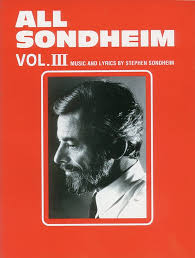 |
All Sondheim Vol III Music and lyrics |
Carl Czerny, Viena (Austria) 1791 – Viena (Austria) 1857
Piano Technique:
Czerny – The School of Velocity Op. 299 No. 39 (sheet music)
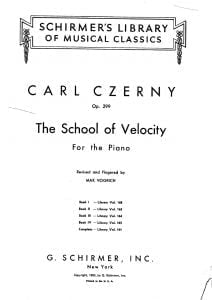
Czerny – Le Perfectionnement, Op.755, No. 24 (with sheet music, partition)
Czerny – 100 Progressive Studies, Op 139 No 1
Czerny – 30 New Studies in Technics Études de Mécanisme Vorschule zur Schule der Gelaeufigkeit Op. 849 No. 1
Czerny – 30 New Studies in Technics Études de Mécanisme Vorschule zur Schule der Gelaeufigkeit Op. 849 No. 2
Czerny – 100 Progressive Studies, Op.139 No. 16 to No. 20
Carl Czerny. Biography
- Date of Birth, February 21, 1791
- Place of birth, Vienna, Austria
- Deceased July 15, 1857 (at the age of 66)
Few composers have been as interpreted as Carl Czerny in the history of music, and yet little is spoken or written in Spanish about this Viennese composer of the early romantic period.
“Hated” by numerous and still current generations of students and appealed for its virtues by the same number of teachers; Czerny stood out above all for the great legacy of his important didactic work, an area that few composers usually dare to tackle, and in which only some -and very few- are successful.
Owner, moreover, of an important and unjustly ignored instrumental work; Czerny’s didactic work is a milestone in the history of pedagogy and his incessant effort and work deserve fair recognition.
Karl Czerny was born on February 21, 1791 in Vienna, the Imperial and Music-loving Capital of Austria, curiously the same year as Mozart’s death.
His father, Wenzel (Václav) Cerný (The surname “Cerný” was later Germanized to “Czerny”, born in Nimburg in 1750, was a talented musician, amateur violinist (like his own father, Karl’s grandfather), who He had been educated in a Benedictine monastery in Prague (today the capital of the Czech Republic) and, in addition to the violin, he played oboe, organ and pianoforte with great talent.
Settling in Vienna in 1786 with his wife, Wenzel established himself as a skilled music and piano teacher and years later gave birth to their only son, Karl Czerny. Still living in Austria, the family maintained a strong attachment to Czech culture, and, in fact, little Czerny did not speak German until he was 10 years old.
During the early years of his life, Karl Czerny took keyboard lessons from his father, and soon demonstrated remarkable compositional and performance skills.
His first attempts at musical writing (never published) began around the age of seven, and in fact by age ten he was able to play “…clearly and fluently any composition by Mozart and Clementi…”, a virtuosity that went hand in hand with his comprehensive and surprising lifelong study of the work of Ludwig V. Beethoven (1770-1827).
In his autobiographical notes, Czerny once described his childhood as “carefully isolated from other children”, and after those first years of permanent study with his father, he continued his training with fellow Czech Wenzel Krumpholz (pianist and violinist of the Orquesta of the Imperial Court, 1761-?).
In 1800, at the age of 9, Karl gave his first concert in his hometown, the Concerto in C minor K. 491. Mozart’s own style had impressed him very favorably years before, listening to the same concerto performed by Johann Nepomuk Hummel. (1778-1837), of Slavic-Hungarian origin and sometime a disciple of Mozart.
The following year, his teacher introduced him to Beethoven, and he performed for him the first movement of Mozart’s Piano Concerto in C Major K. 503 and Beethoven’s own “Pathetic” Sonata. From then on, Czerny became not only a devoted disciple of Ludwig but also an important disseminator of his work and a dedicated and careful interpreter of the new piano forms.
Ludwig once wrote of him: “…I who sign below have the pleasure to testify that young Carl Czerny has made an extraordinary advance on the piano, beyond what could be expected at the age of fourteen. I think he deserves all possible help, not only for what I have just stated, but for your amazing memory… “
Ludwig once wrote of him: “…I who sign below have the pleasure to testify that young Carl Czerny has made an extraordinary advance on the piano, beyond what could be expected at the age of fourteen. I think he deserves all possible help, not only for what I have just stated, but for your amazing memory… “
So close was the relationship between the two that Beethoven entrusted Czerny, years later, with the musical education of his nephew Carl, although he never stopped correcting and suggesting study and fingering techniques.
Parallel to his career as an interpreter, Czerny at the age of 15 began to venture into teaching.
At the age of 19, he met the great Italian pedagogue Muzio Clementi (1752-1832) in Vienna, whose work “Noveau Gradus ad Parnassum” had an impact on our composer and inspired him in his subsequent and magnanimous didactic creation.
Despite Czerny being an excellent performer, with virtuosic mastery and unrivaled ease and memory, at the end of his adolescence he abandoned his career as a performer and devoted himself almost entirely to teaching piano and composition.
His dedication as a teacher (more than hard, since he gave classes during the day and composed for the students at night) began to bear fruit, and very soon his name acquired fame in bourgeois and aristocratic circles, who competed to take lessons with him. Many of his disciples followed his didactic line, such as Liszt’s famous rival, Sigismond Thalberg (1812-1871); the Hungarian Stephen Heller (1813-1888) and the legendary Polish piano teacher Theodor Leschetizky (1830-1915).
One of his most important students, however, is Ferenc (Franz) Liszt (1811-1886), to whom he taught from 1822 and for two years. The Austro-Hungarian composer dedicated his “Transcendental Studies” to Czerny.
Fryderyc Chopin (1810-1849) also visited the Master in 1829, although Chopin did not retain a favorable opinion of Karl… (Although Chopin and Czerny maintained a prolific correspondence (which is still preserved today), in which they expressed mutual admiration , Chopin did not always have a good opinion of Karl’s music.
Although it may be common that Chopin did not get good first impressions of people (remember the accounts of the Pole when he first saw the writer George Sand), he was many times unfair in his comments to third parties.)
“…He is a good guy (…) but nothing more (…) he has arranged another overture for eight pianos and sixteen pianists and seems delighted with it” (…) “Czerny was warmer than any of his compositions” Chopin said ironically, after to visit him for the first time in Vienna.
At this time, Czerny already had an enormous number of compositions, which reached over opus 800 (symphonies and chamber works that were not well received by critics), and many of them were technical studies and development exercises for pianists: hundreds of works that are today the foundation of the study of the instrument.
All of his didactic works were quickly published in Vienna, and with such success among the public that these studies are still included in the programs of all conservatories in the world today.
Among these pieces, “The School of Speed” and “The Art of Fingering” stand out.
Czerny’s literal career as a composer began in about 1812, after copying many works by Bach, Scarlatti, and other early composers.
He occupied his free hours studying the art of orchestration and composing, first essays, then complete works, symphonies and piano works.
In his chamber works (sonatas for piano four hands, piano and strings, etc.), a notable Beethovenian influence is perceived.
Very unfortunately, many of his works were never published, especially sacred choral works (Masses, Offertories, Graduals, etc.). In addition, little material has been recovered from his early days as a composer, as Czerny did not keep an organized record of each of his works at that time.
His deep sensitivity and delicacy of style can be seen in works such as his “Sentimental Sonata in C minor, Op. 10 for four hands”; or in his Piano Concerto in C Major, Op. 153.
His very dedication to teaching demonstrates his dedication and his love for the piano.
At the age of 51, Karl begins to write a few short autobiographical notes, a custom more than widespread in the romantic era, “Erinnerungen aus meinen Leben” (“Memories of my Life”, recently published in Austria.
Czerny led a rather solitary life, living with his parents until his mother’s death in 1827 and his father’s death in 1832. He never married, living alone until the day he died.
Despite not having close relatives, he did have many cats (his students always commented on this eccentricity), and, when he was not composing or teaching, he devoted himself entirely to his animals.
On July 15, 1857, at the age of 66, Karl Czerny died at his home in Vienna. His considerable fortune made as a teacher, composer and performer was donated to the Vienna Conservatory and numerous charitable institutions. Many of his works were unfairly forgotten; and his pedagogical work, which today is divided into four categories, continues to be an iron mainstay in the study of every pianist who begins a correct preparation of his technique.
The Ukrainian-Romanian composer and musicologist Eusebius Mandyczewski (1857-1929) cataloged and prepared several Czerny editions, including more than 300 sacred works, as well as finding numerous misplaced manuscripts.
Your contribution has also been very valuable in the recognition of this author. Still not receiving the best of attention from the critics of his day (not, at least, not by Schumann in his important music newsletter), Czerny was quite appreciated by numerous people who trusted him as a teacher and pedagogue.
Czerny’s work as a composer and teacher must be recognized as such; because he comes to life every day on the stands of thousands of pianists who give their effort and passion to the instrument.
The work of the hard-working teacher who taught by day and composed by night is an inspiring figure we should think of as we approach his vast and loving oeuvre.
In 1821, the nine-year-old Franz Liszt began a two-year period studying piano with Czerny. The teacher remarked that he had ‘never had such an impatient, talented and hard-working pupil’, but Czerny lamented that Liszt had begun his performance career too early, and without adequate or sufficient training in composition. But Liszt was an impatient student, despite his youth promising a long life as a virtuoso performer.
He also had as students Anna Caroline Oury, Theodor Döhler, Leopold von Meyer, Louis Lacombe, Albert Sowinski, Sigismund Thalberg, Alfred Jaëll and Queen Victoria, and already at the end of his profession Ivan Ivanovich Armsheimer and to Friedrich Brandeis.
Czerny did not consider his ‘brilliant concert pieces’ to be ‘serious music’. But in this category, he placed his symphonies, overtures, and concertos for piano, many of which are still unknown today, and some of them languish among his hundreds of unpublished manuscripts.
In addition to many technical studies, Czerny published sonatas, sonatinas and hundreds of shorter works, many of which were arranged for piano for four hands in various editions.
He also published a plethora of works based on the national anthem, popular songs, and other well-known songs. In addition to all the compositions cited during the biography, he left the works written in German: Praktische Schule der Composition (Bonn, 1840), and Umriss der Musikgeschichte (Mainz, 1851).
Czerny’s works include a large number of masses, Requiems, symphonies, concertos, sonatas and string quartets. None of these works are regularly performed today. Nevertheless, Czerny’s numerous didactic works for piano continue to be used in the teaching of this instrument.
The composer and musicologist Johann Theodor Viehmeyer (1870-1947) published his work Schule der Virtuosen.
